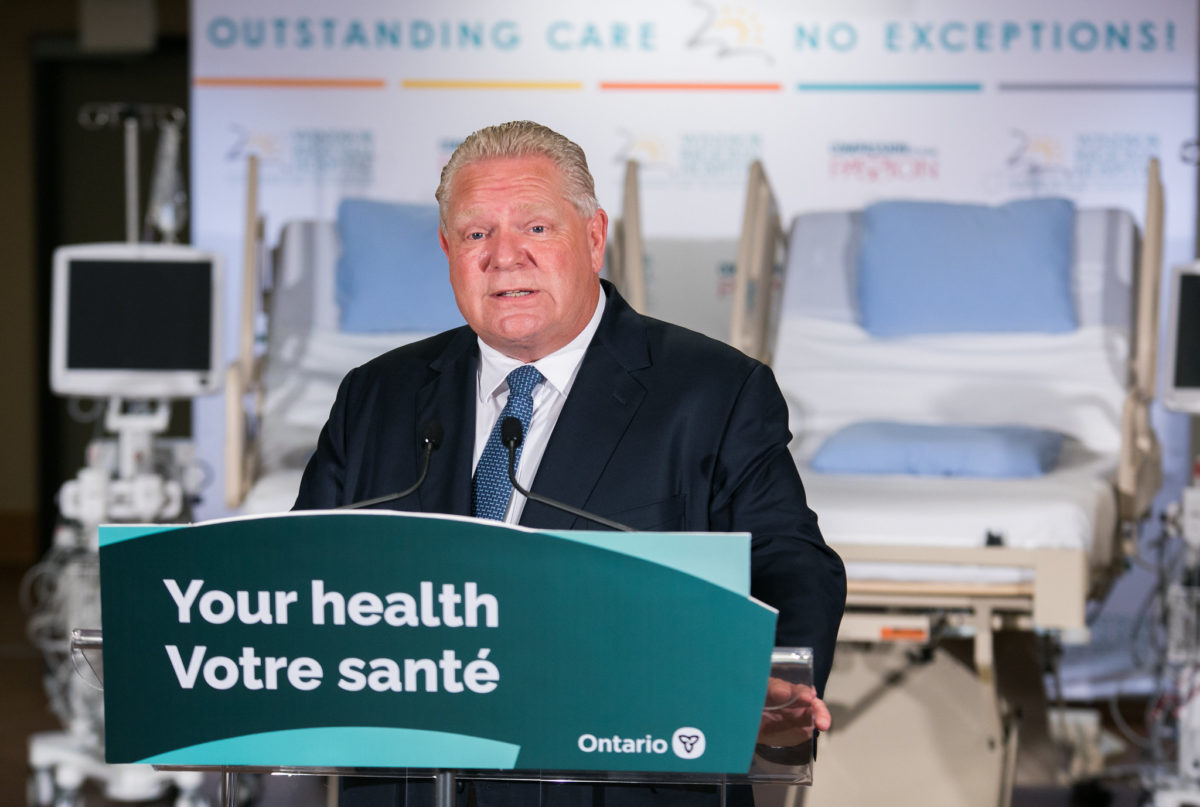Figuring out how to undermine support for public health care isn’t rocket science. All you have to do is destroy the public system, and then people will be willing to accept private health care.
This appears to be Doug Ford’s strategy for weakening the strong attachment Ontarians feel for public health care, thereby enabling his government to plow ahead with plans to further open up lucrative profit opportunities for private health-care businesses.
This would explain, for instance, Ford’s bizarre handling of the nursing shortage in Ontario.
Despite nurses being underpaid, exhausted and demoralized by the pandemic, Ford kept a one per cent per year cap on their wage increases, even as inflation spiked to eight per cent.
This angered nurses and prompted them to leave the public system in large numbers, generating chaos and longer wait times throughout the system — and creating a situation where the province is now paying hundreds of millions of dollars extra per year as Ontario’s hospitals are forced to hire nurses from private agencies at much higher rates.
This bungled handling of the nursing shortage makes no sense, unless Ford was trying to undermine the public’s confidence in our health care system — in which case he appears to have succeeded.
A poll released last week found Canadians feel their access to medical care has worsened in the last few years and that wait-lists are now too long.
As the Globe and Mail reported on its front page, the poll found that, “as a result, 73 per cent now say they’re open to major health-care reform, including a larger role for the private sector.”
This finding was no doubt sweet music for Premier Ford, since it suggests his plan to further privatize Ontario’s health-care system — allowing private clinics to do knee and hip replacements, cataract surgery, colonoscopies, etc. — is in line with what people want.
But on closer examination, the poll presents little evidence that Canadians favour more private health care.
Rather the poll, conducted by the public relations firm Navigator — which is, among other things, a registered lobbyist for the private health-care company Medcan — seems largely aimed at steering respondents away from solutions that would involve strengthening the public system.
Participants were asked which of two statements most closely resembles their view: “Canada’s health-care system is one of the best in the world and we should keep it as it is.” Or: “Canada’s health-care system does not deliver on its promises and is in need of a major reform.”
Given only these two choices, 73 per cent of respondents favoured major reform over doing nothing.
But what we need to know is what kind of reform people want — do they, for instance, want more privatization, or do they want reform within the public system?
This question is never asked.
When asked what their concerns were with the public system, respondents clearly indicated their main concerns were staff shortages and long wait times.
The poll asks them whether, given the long wait times for surgery, they would support some surgeries being done by the private sector? Respondents largely supported this, particularly if the private surgeries were publicly funded.
What does this tell us, however, other than that people are very concerned about long surgery wait-lists? And if they’re only offered one option for solving the problem — private surgery clinics — they’ll support that option.
Why not give them another option such as would they support our public hospitals offering additional surgeries on weekends and evenings to reduce long wait-lists (as suggested by some Ontario doctors)?
Interestingly, both staff shortages and long wait-lists in Ontario are problems that were greatly exacerbated by Ford’s mishandling of the nursing crisis.
Could it be that the dissatisfaction with our health-care system may be best solved — not by introducing a lot of private, profit-making clinics — but simply by paying nurses good wages within the public system?
This article was originally posted to the Toronto Star.



